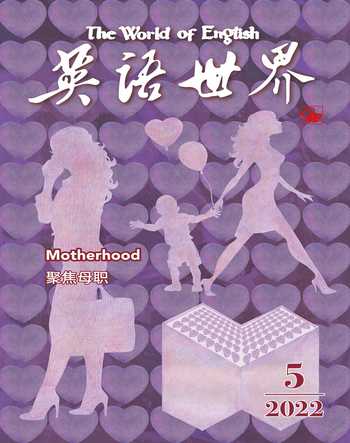李约瑟的疑惑Needham’s Puzzle
林巍
李约瑟,研究中国科技史的著名英国学者,写出了六卷本的《中国科学技术史》,但有个问题一直困扰1着他:“中国古代科学技术很发达,为什么没有产生近代科学”?
Joseph Needham, a well-known British scholar, studied the history of science and technology of China, and wrote the six-volume Science and Civilisation in China. One question, however, always puzzled him: given the highly developed science and technologies in ancient China, why had modern science not emerged in its modern history?
這是一个非常矛盾的问题。首先关乎对“科学”概念的理解。李约瑟经常将science(科学)和technology(技术)两个词合在一起使用,似乎以“技术”充当了“科学”。应当说,中国古代的技术,并不是西方严格意义上的“科学”;如果他说中国古代有技术,而且远比西方发达,便易于理解,但他用的是“中国古代科学”,这便让人费解2。
This is a very controversial issue. Above all, it has to do with the definition of “science”. Since Needham often used “science and technology” as a phrase, and “technology” usually served as “science”, it may confuse people with the question as to whether ancient Chinas science or its technologies were more advanced than those of the West.
而且,李约瑟用的是现代西方的科学分类概念来对中国古代的“科学”进行整理、归纳,于是不免使人误解3,认为中国古代的“科学”就等于近代意义上的科学,例如:第三卷论数学、天文学、地理学,第四卷论物理学,第五卷论化学和化工,第六卷论生物学、农学和医学,等等。于是就有了矛盾:既然近代中国都没能产生近代科学,何以古代便出现了近代科学,而且很“发达”?
Moreover, Needham identified and typed “science” in ancient China based on modern Western scientific classification, which is bound to misdirect the reader to modern “science”, such as mathematics, astronomy, geography in Volume 3 of the book, physics in Volume 4, chemistry, chemical engineering in Volume 5 and biology, agronomy and medicine in Volume 6, etc. That being the case, a contradiction occurred: Since even modern China failed to produce modern science, how could science have appeared in ancient China and have even been highly developed?
通观《中国科学技术史》,在李约瑟笔下,人类的科学似乎有一个统一的发展模式,即原始型—中古型—近代型。欧洲人走完了这一进程,而中国人却止步在了第二个阶段。显然,这是把欧洲的科学发展模式当作世界通用模式,套用4在了中古代科技史。
Throughout Science and Civilisation in China, there is a unified model in the development of human science, namely from primitive to medieval to modern. While the Europeans went through this process, the Chinese apparently halted at the second stage. Obviously, the European model has been used as a universal one ethnocentrically applied to Chinas history of science and technology.
其实,科学有广义和狭义之分。广义的科学是指有关主客观世界的系统知识,狭义的科学则“其推理重实验,其察物有条贯5”;当今世界所通称的科学多指狭义的科学,即西方现代实验科学,而这不同于对中国古代科技的理解。
In fact, the idea of “science” can be defined in both a broad and a narrow sense. Broadly speaking, it refers to systematic knowledge about the subjective and objective worlds. In its narrow sense, it can be understood as “reasoning on the basis of experiments while analyzing by logic”. In todays world, so-called “science” is generally denoted in its narrow sense, namely modern experimental science, which is quite different from ancient Chinas “technology”.
从根本上讲,决定西方近代科学的基因是希腊理性科学6,而中国传统文化中却没有出现这一理性科学基因。西方理性科学是自古希腊以来一直贯穿西方文明发展过程的主流知识形态,在古希腊和古罗马,其典型学科是哲学和数学;在中世纪,为神学;在近代,则是自然科学(数理实验科学)。有理性科学,不一定产生实验科学(如古希腊),但没有理性科学,一定不会产生实验科学。这正是中国近代何以没有产生西方人认为的“近代科学”的历史原因。
Fundamentally, the core that determines modern science in the West is ancient Greek rational science, which was absent from traditional Chinese culture. Western rational science has long been the mainstream knowledge developed throughout Western civilization: in ancient Greece and Rome it was mainly in the forms of philosophy and mathematics, in the Middle Ages theology, and in modern times natural science (mathematical and experimental sciences). Experimental science may not ne-cessarily follow rational science (such as in ancient Greece); however, without rational science, experimental science is out of the question. This is precisely the historical reason why “modern science” as defined by westerners did not occur in China.
若不顾中国古代基本没有数理实验科学传统的事实,勉强依照数理实验科学的框架去梳理中国古代的自然知识成就,便难免出现两个误区:一是前面提到的以技术代替科学,二是得出许多脱离中国古代语境的术语、观点和结论,进而产生矛盾和混乱。例如,在中国古代的自然知識中,由于数学没有优先性,其各种知识没有显著的数学化特征,所以中国的传统数学在本质上是计算“技术”,没有独立的知识地位,是“有术无学7”,完全不能等同于西方意义上的“数理科学”。
Should we ignore the fact that there was no such thing as mathematical and experimental science in ancient China, the rigid classification imposed on the history of Chinese explorations in natural know-ledge would inevitably cause misconceptions on two fronts: One, it is very easy to substitute the concept of technology for that of science, as previously mentioned; Two, many academic terms, viewpoints and judgments that have been taken completely out of their context would subsequently be produced, causing confusion and mess. For example, since “mathematics” did not prominently develop in ancient China and other kinds of knowledge were not expressed in mathematical terms, its mathematics in essence remained as a technique of calculation and never gained the status of “mathematical science” as in the West; there was no equivalence between the two.
由此而言,在我看来,李约瑟疑惑的根本原因,在于他没有充分认识到中西方文明发展进程的本质差别,从而混淆了两套完全不同性质的“科学8”(包括“技术”)概念。
From this perspective, the root cause of Needhams puzzle, in my view, lies in his lack of recognition of essential differences between the developments of civilizations in China and in the West, and the consequent confusion of the two sets of concepts—“science” and “technology”, which are completely different in their historical contexts.
*博士,杭州师范大学外国语学院翻译研究所特聘教授,本刊编委。
1一般似可译成 bother、beset、perplex等,但这里更多是指问题让人疑惑,即fill one with bewilderment and make them unable to understand it,故用了puzzle。 2还可译成hard for people to understand、be obscure/unintelligible for people、inexplicabile等,此处变通为it may confuse people with the question as to ... 3此“误解”是使动用法,不宜译成misunderstand、misread、misconstrue、misapprehend、misconceive 等,而实则为“误导”,即misdirect、misguide等。
4“套用”通常译作use indiscriminately、 apply mechanically 等,但这里涉及以欧洲人的思维模式来理解中国历史,故用了ethnocentrically(有种族中心主义色彩地)一词。 5“条贯”为书面用语,即“条理、系统”,似可译成order、 system、organization等,但这里宜译为by logic。
6所谓“希腊理性科学”,实质指古代希腊的理性主义,即能超越自己感官欲望和利害关系、不计得失地探究各种抽象思辨的理智。 7“有术无学”,这里不好直译,而remained as a technique of calculation and never gained the status of “mathematical science” as in the West 算是一种释译。
8鉴于李约瑟文中的“科学”概念通常是science和technology并用的,故这里不妨将“‘科学(包括‘技术)”以同样形式译出。

